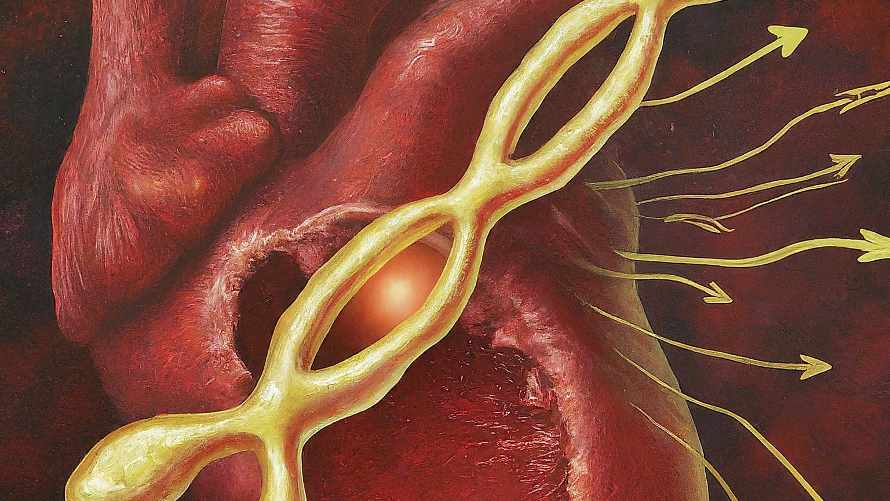Scientists from the University of Virginia School of Medicine have made a significant discovery in understanding why men are more prone to heart failure than women. They have identified a single gene on the Y chromosome that contributes to the increased incidence of heart failure in men, particularly those who experience Y chromosome loss as they age.
Kenneth Walsh, PhD, director of UVA’s Hematovascular Biology Center, and his team previously found that Y chromosome loss, which occurs progressively throughout life and affects approximately 40% of 70-year-old men, can lead to heart muscle scarring and deadly heart failure. In their latest study, the researchers have pinpointed how Y chromosome loss triggers changes in heart immune cells, making them more likely to cause scarring and heart failure.
The team focused on a gene called Uty, which helps control the operating instructions for immune cells called macrophages and monocytes. When the Uty gene was disrupted, either individually or through Y chromosome loss, it triggered changes in the immune cells in lab mice, causing the macrophages to become much more prone to scarring. This accelerated heart failure in the affected mice.
Excitingly, the researchers were able to prevent these harmful changes in the mice’s macrophages by administering a specially designed monoclonal antibody. This finding suggests that, with further research, a similar approach could lead to a way to treat or prevent heart failure and other fibrotic diseases in men with Y chromosome loss.
“The identification of a single gene on the Y chromosome provides information about a new druggable target to treat fibrotic diseases,” said Walsh, who is also affiliated with UVA’s Division of Cardiovascular Medicine and Robert M. Berne Cardiovascular Research Center.
The researchers believe that a small group of genes found on the Y chromosome may have significant effects on a wide array of diseases. They are currently working with clinician colleagues in the Division of Cardiovascular Medicine at UVA to assess whether Y chromosome loss in men is associated with greater scarring in the heart.
“This research will provide new avenues for understanding the causes of heart disease,” Walsh said. “The study of these age-acquired mutations represents a new field of human genetics.”

